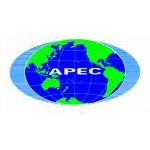APEC treads fine line between regulation, protectionism
 Lima - Leaders of the Asia-Pacific Economic Cooperation (APEC) forum meeting spent the weekend in Lima continuing to tiptoe a balance between regulation and protectionism as the world tackles the ongoing economic and financial crisis.
Lima - Leaders of the Asia-Pacific Economic Cooperation (APEC) forum meeting spent the weekend in Lima continuing to tiptoe a balance between regulation and protectionism as the world tackles the ongoing economic and financial crisis.
Their efforts crystallized on the stalled Doha Round of World Trade Organization (WTO) talks, declaring their intention to reach a WTO agreement by next month. Launched in 2001, the Doha round made only halting advances amid rich and poor countries disagreeing on trade in areas such as services and agricultural commodities.
"We seek an ambitious and balanced conclusion to the Doha Development Agenda negotiations to provide the basis for our economies to grow and prosper," the statement said. "We are intensifying our engagement with WTO counterparts to create the convergence necessary to achieve this outcome."
But the WTO talks are global, and some of the key players in the process are not part of the APEC meeting in Peru.
It is some countries in the European Union, a group of agricultural producers led by Brazil, India and South Africa, and Democrats in the US Congress who have been most responsible for erecting hurdles to the current WTO round and other potential trade liberalization.
None are represented in Lima, which includes Pacific Rim countries from Asia and the Americas. The United States is represented by the lame-duck Republican President George W Bush, who will be replaced in January by newly elected Democrat Barack Obama, backed by newly enlarged Democratic majorities in Congress.
Any determined move from protectionism toward further liberalizing trade, as a way out of the current global downturn, is tempered by the fact that an APEC commitment is hardly decisive.
Bush has mostly favoured free trade, but Obama is expected to approach the issue more cautiously. On the campaign trail, the president-elect called for renegotiation of the long-standing North American Free Trade Agreement (NAFTA) with Canada and Mexico to increase protections for labour and environmental standards.
"Government intervention is essential," Bush told APEC business leaders Saturday, as if preparing the ground for a change in US policies.
He still emphasized that governments must "resist the temptation to overcorrect" market functions.
Canadian Prime Minister Stephen Harper stressed that "now is a time to open doors, not to erect walls," calling on world leaders to "improve regulation, not necessarily increase regulation."
On Friday, Chinese President Hu Jintao called for development that is "comprehensive, balanced and sustainable" and called corporative responsibility an "imperative."
Indonesian President Susilo Bambang Yudhoyono said that people around the world will continue to support globalization in the current crisis only if they "derive direct and real benefits" in their everyday lives.
As the world economy continues to suffer from a severe financial crisis, which APEC leaders in Lima have described from "serious" to "colossal," emerging countries are raising their voices and making their own demands.
For all the talk in Lima, with rising unemployment in Europe and a generally devastated economy in the United States, with agricultural countries on the verge of losing the gains they have recently made in the fight against poverty and with Obama about to move to the White House, the world may well be moving closer to protectionism a successful Doha Round. (dpa)